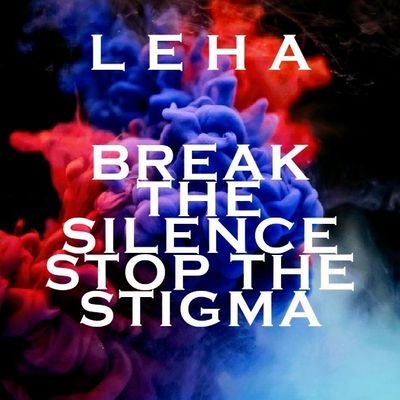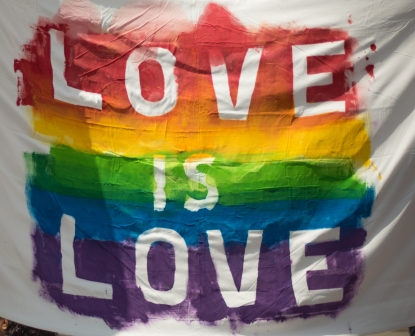Project
Project Nuru
-
Amount Funded
20,938 EUROProject Duration
01 Aug 2019 - 31 Dec 2020 -
-
Lead organisation
Partners
Mamboleo Peer Empowerment Group
-
Minority Persons Empowerment Programme (MPEG) is a community platform created by community members who regularly meet in restaurants and hook up spaces to mobilise and talk about a wide array of issues including health, HIV and other social determinants. With support from other more organised community platforms, MPEG collaborated with the National Organisation of Peer Educators (NOPE) to establish a Drop-in Service Centre in Thika popularly known as SASA Centre.
MPEG provides information and education awareness for Men who have sex with Men (MSM) wellbeing and sexual and reproductive health rights as well as advocating for MSMs on sexual reproductive health wellbeing, psychosocial and economic empowerment.
MPEG is the physical host for this project being implemented by LEHA Kenya.
-
Organisation
Minority Persons Empowerment Programme (MPEG) is a community platform created by community members who regularly meet in restaurants and hook up spaces to mobilise and talk about a wide array of issues including health, HIV and other social determinants. With support from other more organised community platforms, MPEG collaborated with the National Organisation of Peer Educators (NOPE) to establish a Drop-in Service Centre in Thika popularly known as SASA Centre.
MPEG provides information and education awareness for Men who have sex with Men (MSM) wellbeing and sexual and reproductive health rights as well as advocating for MSMs on sexual reproductive health wellbeing, psychosocial and economic empowerment.
MPEG is the physical host for this project being implemented by LEHA Kenya.
-
Project
In 2018, LBQ Education on Health and Advocacy (LEHA Kenya) conducted conversation spaces as safe spaces for Lesbian, Bi-sexual and Queer (LBQ) women to speak out against various violations they face which include but are not limited to sexual violence, intimate partner violence, and physical abuse. Through Project Nuru, LEHA Kenya improves the adoption of healthy behaviours and access to and utilisation of Sexual Health Rights LBQ friendly Minimum Package of Services.
Structures and systems are in place to ensure effective prevention of violence and response and strengthen social, economic, legal and cultural structures and systems to support the reduction of LBQ vulnerability to violence. By targeting LBQ persons through different interventions with the aim of preventing cases of violence from happening (positive norms change), the project continues to build the capacity of health works and LBQ peer educations to ensure the provision of stigma and discrimination-free services.
-
-
In 2018, LBQ Education on Health and Advocacy (LEHA Kenya) conducted conversation spaces as safe spaces for Lesbian, Bi-sexual and Queer (LBQ) women to speak out against various violations they face which include but are not limited to sexual violence, intimate partner violence, and physical abuse. Through Project Nuru, LEHA Kenya improves the adoption of healthy behaviours and access to and utilisation of Sexual Health Rights LBQ friendly Minimum Package of Services.
Structures and systems are in place to ensure effective prevention of violence and response and strengthen social, economic, legal and cultural structures and systems to support the reduction of LBQ vulnerability to violence. By targeting LBQ persons through different interventions with the aim of preventing cases of violence from happening (positive norms change), the project continues to build the capacity of health works and LBQ peer educations to ensure the provision of stigma and discrimination-free services.
-
In 2018, LEHA conducted conversation spaces that provide safe spaces for LBQ women to speak out on various violations that they face, which included but not limited to, sexual violence, intimate partner violence and physical abuse. During the implementation of the project, LEHA held advocacy meetings aiming to reduce stigma for LBQ women which has seen resulted to majority of them not accessing basic services.
During the project period, LEHA met several women such as Nanjala who stayed with abusive guardians and beat them regularly due to their sexual orientation. Nanjala didn’t have an income which made it hard for her to seek alternative residence Nanjala’s first instance of reporting was December 2019. She was then taken through comprehensive counselling which included trauma counselling ways to identify red flags before violence can happen as well as how to take care of her mental wellness.
In June 2020, the violence occurred again but with the help of paralegals who have been trained by the National Gay and Lesbian Human Rights Commission (NGLHRC) the team was able to involve NGLHRC who the supported Nanjala with relocation. They have an income generating activities together with their partner which caters for their basic need and they are safe now.
Nanjala’s story is one among the many that the LEHA team handled. With the advocacy forums conducted, this ensured that the LBQ community is well aware of their rights and are more willing to access SRH services without fear of stigma and discrimination. The peer education sessions created a safe space for more of the rural LBQ persons to access to information mostly on COVID-19, sexual orientation, gender identity and expression and sex characteristics, violence, hygiene and human rights thus increasing biomedical and psychosocial services access in more interior regions of Kiambu County in the drop in center as well as the community outreaches.
Additionally, LEHA was included in the key population technical working group that focuses on addressing advocacy issues for the key population in Kiambu county. This group consist s of key population partners and the County health management team who are key drivers in the health issues for Key populations who include Sex workers, Men Having Sex with Men (MSM) People who Inject Drugs (PWID) and LBQ women.
Before the pandemic, the LEHA constituents were facing great challenges with their mental health due to the stigma and discrimination; this was made worse by the pandemic since it brought about effects which were more psychologically challenging. Psychosocial support groups to groups of individuals and mental health clinics in the outreaches have kept the psychosocial support ongoing thus mental health well catered for. As a result of all these interventions, health education on violence prevention and reporting has created more awareness thus more cases being documented especially with the rise of violence during the pandemic.
-
News




